#gynaecological surgery
Text

Patient under Anaesthesia awaiting for surgery to commence
178 notes
·
View notes
Text







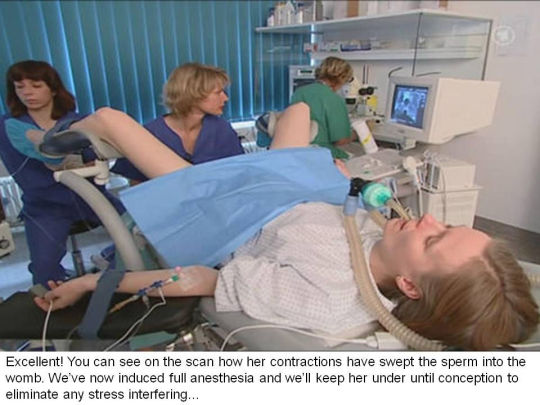


In a not-too-distant future where the birth rate is almost zero, creating a social and economic collapse, all fertile women must enter the government's special program.
#medfet#operating room#gynaecology#medical experimentation#surgery kink#gyno surgery#anesthesia mask#medical#submisive and breedable#breeding project#laryngeal mask airway#laboratory#med student#surgery
75 notes
·
View notes
Text
2 notes
·
View notes
Text

3 notes
·
View notes
Text
“Time and health are two precious assets that we don’t recognize and appreciate until they have been depleted.”
“Physical fitness is the first requisite of happiness.”
Centre of Excellence in Hernia Surgery-2018
BEST Institute and Research Centre and AV Hospital has been recognized as the “Centre of Excellence in Hernia Surgery” by the Asia Pacific Hernia Society. Dr. M. Ramesh, Director BEST Institute and Research Centre, received the certificate of Centre of Excellence during the Asia Pacific Hernia Society meeting in Dubai November 30th 2018.
AV Hospital is the only hospital in South India to be recognised as ” Centre of Excellence in Hernia Surgery” both by Hernia Society of India and Asia Pacific Hernia Society. A really proud moment for all of us. Many thanks to Asia Pacific Hernia Society and Hernia Society of India. We will promise to continue our good work in abdominal wall hernia as well as in training surgeons in the field of herniology.
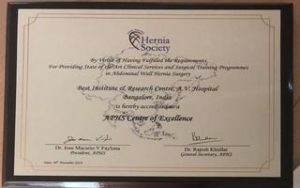

#hospital#surgery#All Departments#Anesthesiology#ENT#Gastroenterology#General Surgery#Internal Medicine#Maternity#Medical Oncology#Minimal Invasive Surgery#Nephrology#Neurology#Obstetrics & Gynaecology#Pathology#Pediatric Surgery#Pediatrics#Psychiatrist#Radiology#Surgical Oncology#Urology
3 notes
·
View notes
Text
Understanding Gynaecological Surgeries: Causes, Procedures, and Recovery
Introduction:
Gynaecological surgeries encompass a broad spectrum of procedures aimed at addressing various conditions affecting the female reproductive system. These surgeries are often necessary to alleviate symptoms, treat diseases, and improve overall health and quality of life. Understanding the causes behind these surgeries is crucial for women’s health awareness and informed decision-making. In this blog post, we delve into the common causes of gynaecological surgeries, the procedures involved, and what to expect during the recovery process.
Causes of Gynaecological Surgeries:
1. Fibroids : Uterine fibroids are noncancerous growths that can cause heavy menstrual bleeding, pelvic pain, and pressure symptoms. When fibroids become symptomatic and conservative treatments fail, surgical intervention such as myomectomy (removal of fibroids) or hysterectomy (removal of the uterus) may be necessary.
2. Endometriosis : Endometriosis is a condition where tissue similar to the lining of the uterus grows outside the uterus, leading to pelvic pain, painful periods, and infertility. Surgical options for endometriosis include laparoscopic excision of endometrial implants or laparoscopic hysterectomy in severe cases.
3. Ovarian Cysts : Ovarian cysts are fluid-filled sacs that develop on the ovaries. While many cysts resolve on their own, larger or persistent cysts may require surgical removal, especially if they are causing pain, bleeding, or torsion (twisting) of the ovary.
4. Pelvic Organ Prolapse : Pelvic organ prolapse occurs when the pelvic organs (such as the bladder, uterus, or rectum) descend into the vaginal canal due to weakened pelvic floor muscles. Surgical repair, known as pelvic organ prolapse surgery, aims to restore the normal position and function of the affected organs.
5. Pelvic Inflammatory Disease (PID): PID is an infection of the female reproductive organs, often caused by sexually transmitted bacteria. In severe cases where antibiotics are ineffective or if abscesses develop, surgery may be required to drain the abscesses and remove damaged tissue.
6. Cervical or Uterine Cancer: Surgical treatment for cervical or uterine cancer may involve removal of the cervix (trachelectomy), uterus (hysterectomy), and surrounding tissues. In some cases, lymph nodes in the pelvis may also be removed to assess the extent of cancer spread.
Gynaecological Surgery Procedures:

1. Laparoscopy: Laparoscopic surgery, also known as minimally invasive surgery, involves making small incisions in the abdomen through which a laparoscope (thin, flexible tube with a camera) and surgical instruments are inserted. This technique allows for shorter recovery times, less scarring, and reduced postoperative pain compared to traditional open surgery.
2. Hysteroscopy: Hysteroscopy involves the insertion of a hysteroscope (thin, lighted tube) through the vagina and cervix into the uterus to visualize and treat abnormalities such as fibroids, polyps, or adhesions. It can often be performed on an outpatient basis with minimal discomfort.
3. Robotic Surgery: Robotic-assisted surgery utilizes advanced robotic technology to enhance the precision and dexterity of surgical instruments. Surgeons control robotic arms from a console, allowing for greater maneuverability in tight spaces such as the pelvis.
4. Open Surgery: In cases where laparoscopic or robotic techniques are not feasible or appropriate, open surgery (laparotomy) may be performed, involving a larger abdominal incision. Open surgery is typically reserved for complex cases or when extensive tissue manipulation is required.
Recovery from Gynaecological Surgeries:
The recovery process following gynaecological surgery varies depending on the type and complexity of the procedure performed. However, there are some general guidelines that apply to many patients:
- Pain Management: Pain medication prescribed by your surgeon will help alleviate discomfort during the initial recovery period. Over-the-counter pain relievers may also be recommended.
- Rest and Activity: It’s essential to balance rest with light activity to promote healing and prevent complications such as blood clots. Your surgeon will provide guidance on when it’s safe to resume daily activities and return to work.
- Follow-up Care: Attend all scheduled follow-up appointments with your healthcare provider to monitor your progress, address any concerns, and ensure proper healing.
- Diet and Nutrition: Eat a well-balanced diet rich in nutrients to support recovery and promote tissue healing. Stay hydrated and avoid heavy or greasy foods that may cause digestive discomfort.
- Incision Care: Keep surgical incisions clean and dry to prevent infection. Follow your surgeon’s instructions regarding wound care, including showering and dressing changes.
- Physical Therapy: Depending on the type of surgery performed, your surgeon may recommend pelvic floor exercises or physical therapy to improve strength, flexibility, and bladder control.
Gynaecological surgeries play a vital role in managing various reproductive health conditions, offering relief from symptoms and improving overall well-being. By understanding the causes of these surgeries, the procedures involved, and what to expect during recovery, women can make informed decisions about their healthcare and take an active role in their recovery journey. Always consult with a qualified healthcare provider to discuss treatment options and develop a personalized care plan tailored to your individual needs.
#gynaecological oncologist near me#gynaecological surgeries in jaipur#gynae cancer doctor in jaipur#gynae oncologist in jaipur#gynaecological cancer in jaipur#dr chandrakanta gynae oncology in jaipur#endometrial cancer treatment in jaipur#choriocarcinomatreatment in jaipur
0 notes
Text
Yupiter Hospital's Intensive Care and Emergency & Critical Care units are always ready
Yupiter Hospital's Intensive Care and Emergency & Critical Care units are always ready to provide exceptional care when you need it most. Trust us for your medical emergencies.
Visit Website: https://yupiterhospital.com/
Call Us: +91 98105 33228

#YupiterHospital#EmergencyCare#HealthcareServices#BestHealthCare#hospitality#hospitalopening#newhospital#doctors#surgery#EmergencyServices#delhi#cardiology#sportsinjury#Gastroenterology#gynaecology#neonatology#obstetrics#Obstetrics#Gynecology#neurology#urology
0 notes
Text

This blog aims to provide insight into the complex factors influencing the decision to undergo hymenoplasty surgery and encourages dialogue around the broader societal attitudes and pressures surrounding virginity and women’s bodies.
#cosmetic gynecology#cosmetic gynecologist#best laparoscopic surgeon#best cosmetic gynecologist#best laser treatment#cosmetic gynaecology#cosmetic gynecologist in chennai#hymenoplasty surgery#eva cosmo laser clinic in chennai
0 notes
Text
Fibroids (Uterine Fibroids)
Fibroids may not require treatment if they are tiny and do not cause symptoms. Your outlook will be determined by the size and location of your fibroids.
At New Concept Clinic, we have the top gynaecologist in Dubai, who provides comprehensive care, from first consultation and diagnosis to treatment and surgical procedures. Call now to schedule an appointment.
#Fibroids#Fibroids Treatment#Fibroid Removal#Fibroid Treatment#Fibroid Surgery#pregnancy#gynaecology#gynecologist#pregnant
0 notes
Text
Top-Notch Gynaecology Surgery Hospital in Navi Mumbai -Apex Multispeciality Hospital
For top-notch gynaecology surgery hospital in Navi Mumbai, visit Apex Multispeciality Hospital. Our advanced facilities and skilled specialists ensure safe and effective procedures for women's health. Trust us for comprehensive care and optimal outcomes.
0 notes
Text
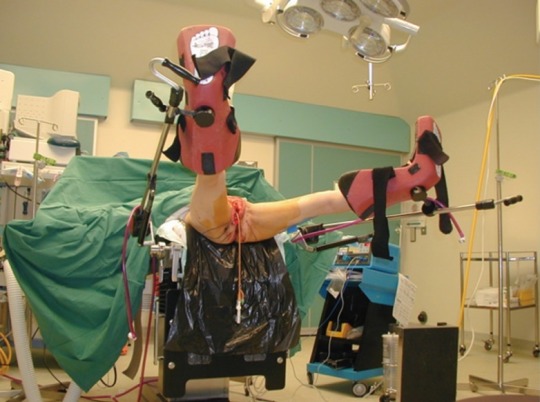
Looks like this patient has had some serious Gynaecological surgery
105 notes
·
View notes
Text




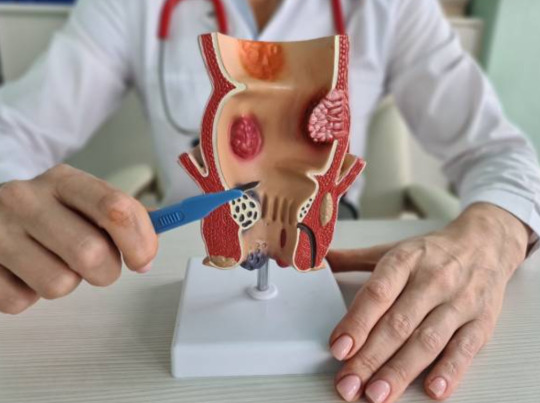
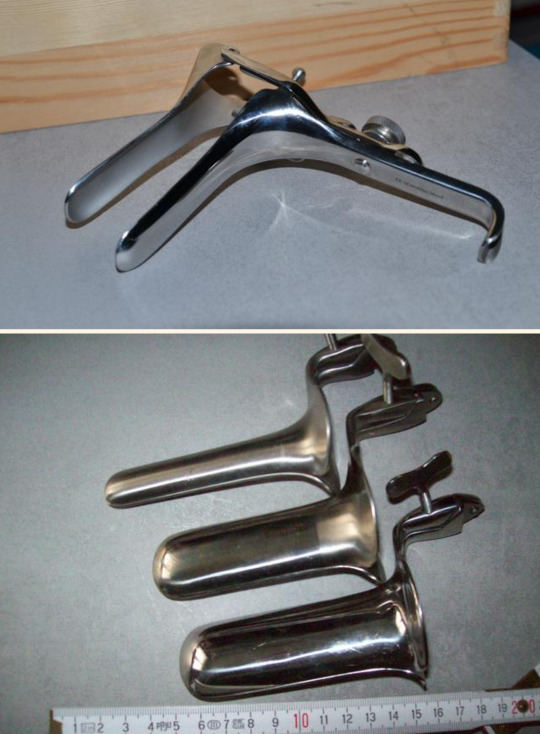


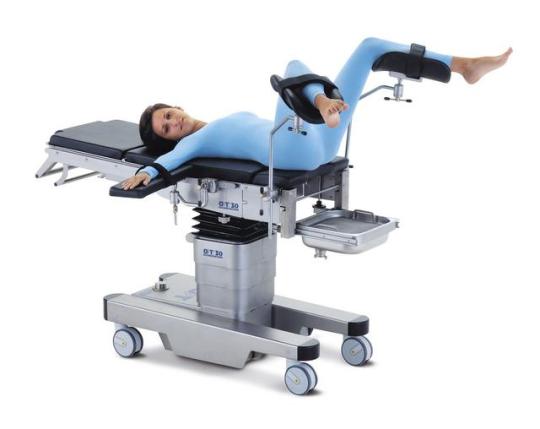
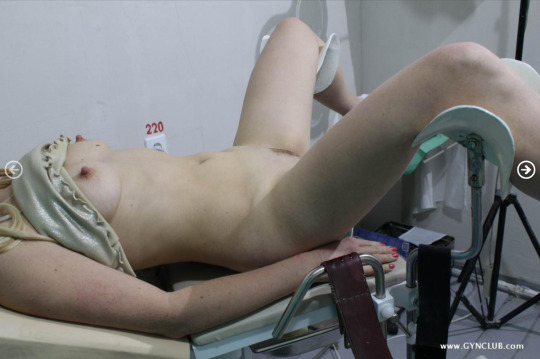
Gynecological practice: Art by which a woman becomes sacred through scientific and medical procedures.
29 notes
·
View notes
Text

Gynaecology Surgery in India - In India, specialised hospitals like the Thangam Robotic Institute offer gynaecological cancer operations, including robotic surgery.
0 notes
Text

The Benefits of Pursuing a Fellowship in Laparoscopic Surgery
Introduction
In the evolving landscape of surgical procedures, laparoscopic surgery emerges as a forefront technique, offering numerous advantages over traditional methods. Pursuing a fellowship in laparoscopic surgery not only equips surgeons with the specialized skills needed for these minimally invasive procedures but also opens the door to enhanced patient care and outcomes. This blog delves into the myriad benefits of undertaking a fellowship in laparoscopic surgery, spotlighting hands-on training opportunities, advancements in laparoscopic techniques, and the specific areas of expertise, including laparoscopic gynecology fellowships.
The Importance of Laparoscopic Surgery
Laparoscopic surgery, also known as minimally invasive surgery, has revolutionized the field of surgery over the past few decades. Unlike traditional open surgery, laparoscopic procedures involve small incisions, through which a camera and surgical instruments are inserted. This technique offers numerous benefits over conventional methods, including reduced post-operative pain, shorter hospital stays, faster recovery times, and minimal scarring. As such, the demand for skilled surgeons in this domain has escalated, highlighting the importance of specialized training in laparoscopic techniques.
The Role of a Laparoscopic Surgery Fellowship
Pursuing a fellowship in laparoscopic surgery is pivotal for surgeons looking to specialize and excel in minimally invasive procedures. These advanced training programs are designed to equip surgeons with the knowledge, skills, and experience necessary to perform complex laparoscopic surgeries with precision and confidence.
- Hands-On Laparoscopic Training: One of the core components of a laparoscopic surgery fellowship is the extensive hands-on training it offers. Fellows have the opportunity to learn and practice a wide array of laparoscopic techniques under the guidance of experienced surgeons.
- Exposure to Complex Cases: Through these fellowships, surgeons are exposed to complex and varied cases, which broadens their experience and enhances their problem-solving skills in real-world settings.
- Learning from Experts: A laparoscopic surgery fellowship provides access to mentorship from leading experts in the field. This interaction is invaluable for gaining insights into the latest advancements, techniques, and best practices in laparoscopic surgery.
- Specialization Opportunities: For those interested in specific areas such as laparoscopic gynecology, fellowships offer specialized training tailored to equip surgeons with the expertise required to address unique challenges within their field of interest.
In summary, a fellowship in laparoscopic surgery is not just a learning experience; it is a transformative journey that equips surgeons with the advanced skills and confidence to excel in the rapidly evolving domain of minimally invasive surgery.
The Benefits of Pursuing a Laparoscopic Surgery Fellowship
Hands-On Training in Minimally Invasive Techniques
A laparoscopic surgery fellowship provides invaluable hands-on training, allowing surgeons to gain direct experience in minimally invasive procedures. This immersive approach significantly enhances a surgeon's capabilities, ensuring they master the precision and skill required to perform surgeries with minimal patient discomfort and faster recovery times.
Exposure to a Wide Range of Laparoscopic Procedures
Fellows are exposed to a diverse array of laparoscopic procedures throughout their training. This exposure spans from basic diagnostic laparoscopy to more complex surgical interventions, including laparoscopic gynecology. Such comprehensive training ensures that fellows are well-prepared to handle a variety of clinical situations and patient needs.
Mentorship from Experienced Surgeons in the Field
One of the most invaluable aspects of a laparoscopic surgery fellowship is the opportunity to work under the mentorship of seasoned surgeons. This mentorship facilitates the sharing of valuable knowledge and best practices and provides fellows with guidance on navigating surgical challenges and advancing their careers.
Enhanced Surgical Skills and Proficiency
The intensive nature of a fellowship leads to markedly improved surgical skills and proficiency. Fellows learn to operate with increased efficiency, accuracy, and safety, elevating the quality of care they can provide to patients.
Increased Job Opportunities and Career Advancement
Completing a fellowship in laparoscopic surgery significantly enhances a surgeon’s credentials, making them highly sought after by hospitals and surgical centers. This opens up numerous job opportunities and paves the way for career advancement, including leadership positions in medical institutions.
Laparoscopic Surgery Training Courses
Overview of Laparoscopic Surgery Training Programs
Laparoscopic surgery training programs are designed to provide surgeons with the foundational knowledge and technical skills required for minimally invasive procedures. These programs include detailed theoretical learning, as well as practical sessions where surgeons can practice their skills in a safe, controlled environment.
Curriculum and Duration of Training Courses
The curriculum of laparoscopic surgery training courses typically covers anatomy, physiology, the principles of laparoscopy, and the specific techniques for conducting laparoscopic surgeries. The duration of these courses can vary, ranging from short-term workshops to more extensive fellowship programs lasting several months to a year.
Accredited Institutions and Fellowships
Accredited institutions offering laparoscopic surgery training courses and fellowships adhere to stringent standards ensuring the quality and comprehensiveness of the training. Prospective fellows should seek out programs recognized by reputable surgical associations, as these are indicative of a curriculum and mentorship that meet the highest professional benchmarks.
Laparoscopic Gynecology Fellowship
Specialized Training for Gynecologists
Laparoscopic gynecology fellowships offer an intensive, focused training program designed to equip gynecologists with advanced skills in minimally invasive surgical techniques. These fellowships provide hands-on experience in a wide range of procedures, from routine laparoscopic surgeries to complex cases requiring sophisticated interventions. The training encompasses both the technical aspects of surgery and patient management, preparing fellows to handle various clinical scenarios effectively.
Advantages of a Gynecology Fellowship in Laparoscopic Surgery
Participating in a fellowship in laparoscopic surgery offers significant benefits. It enhances a gynecologist's surgical repertoire, making them proficient in performing surgeries with fewer complications, reduced recovery times, and minimal scarring for patients. Furthermore, the fellowship paves the way for career advancement, as specialists in minimally invasive surgery are in high demand. It also provides an excellent platform for building professional networks with peers and mentors in the field.
Subspecialties and Research Opportunities
Fellows have the opportunity to explore subspecialties within laparoscopic gynecology, including endometriosis, urogynecology, and gynecologic oncology. These fellowships often incorporate research components, allowing fellows to contribute to advancements in surgical techniques and patient care. Engaging in research fosters a deeper understanding of clinical challenges and enhances problem-solving skills, positioning fellows as leaders in laparoscopic gynecology.
Application Process and Requirements for Fellowship
Prerequisites for Applying to Laparoscopic Surgery Fellowships
To apply for a laparoscopic surgery fellowship, candidates must possess a medical degree and have completed a residency in gynecology or surgery. Some programs may require certification in basic laparoscopic skills or previous experience in minimally invasive procedures. A strong academic record, letters of recommendation, and a demonstrated interest in laparoscopic surgery are also crucial for a competitive application.
Tips for a Strong Fellowship Application
A compelling application highlights not only your surgical skills and academic achievements but also your commitment to the field of laparoscopic surgery. Personal statements should articulate your career goals, reasons for choosing the fellowship, and your vision for the future of minimally invasive surgery. Additionally, securing recommendations from mentors or colleagues who can attest to your surgical abilities and professionalism will strengthen your application.
Interview Process and Selection Criteria
The interview process is a critical step in the fellowship selection. Candidates should be prepared to discuss their surgical experience, research interests, and how the fellowship aligns with their career objectives. Selection committees look for applicants who demonstrate a passion for laparoscopic surgery, a solid foundation in surgical principles, and the potential to contribute to the field through clinical practice or research.
Conclusion
In conclusion, a Fellowship in Laparoscopic Surgery signifies a pivotal milestone in a surgeon's career, opening doors to advanced surgical techniques, enhanced patient care, and leadership opportunities in minimal access surgery. By delving deep into hands-on training, cutting-edge research, and specialized modules such as laparoscopic gynecology, participants are poised to emerge as proficient practitioners in this rapidly evolving field. Whether your goal is to refine your surgical acumen, contribute to groundbreaking surgical methodologies, or elevate patient outcomes, this fellowship stands as a beacon for those dedicated to excellence in laparoscopic surgery.
#fellowship in laparoscopic surgery#fellowship in minimal access surgery#hands on laparoscopic training#hands on laparoscopic training in india#laparoscopic courses in india#laparoscopic gynaecology fellowship#laparoscopic surgery course#laparoscopic surgery training courses#laparoscopic surgery training courses in india
0 notes
Text
Endometrial Ablation Surgery: Know the Purpose and Procedure
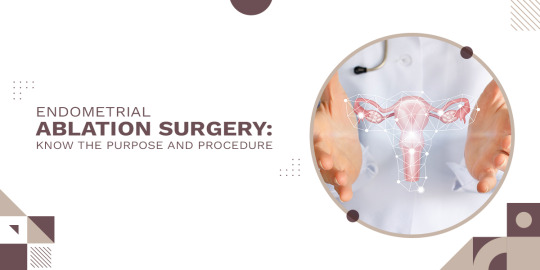
Explore the reasons and process behind endometrial ablation surgery, a treatment for heavy periods. See a doctor to get insights into its purpose. Learn more about it here.
0 notes
Text
Top 10 Points : Finding the Best Gynae Oncologist for Your Journey
Introduction:
Facing a diagnosis of gynecologic cancer can be overwhelming, but finding the right gynae oncologist can make all the difference. With their specialized expertise and compassionate care, these medical professionals play a pivotal role in guiding patients through their treatment journey. In this blog post, we’ll explore what makes a gynae oncologist the best choice for your needs and offer tips for finding the right one.
Dr. Chandrakanta Sulaniya is a renowned gynae oncologist whose unwavering commitment to excellence has earned her widespread recognition and respect in the medical community. As the founder and head of the Gynae-Oncology Center in Jaipur, Dr. Sulaniya leads a team of dedicated professionals dedicated to providing world-class care to women battling gynecologic cancers.
With a rich background in gynecology and oncology, Dr. Sulaniya brings a depth of expertise to her practice that is second to none. Her extensive training and experience allow her to offer a comprehensive range of diagnostic, treatment, and follow-up services for gynecologic cancers, including ovarian, cervical, and endometrial cancer.
1. Specialized Expertise:
Gynae oncologists undergo extensive training in both gynecology and oncology, allowing them to provide comprehensive care for women with gynecologic cancers such as ovarian, cervical, and endometrial cancer. Their specialized expertise equips them to navigate the complexities of these diseases and tailor treatment plans to each patient’s unique situation.
2. Multidisciplinary Approach:
The best gynae oncologists understand the importance of a multidisciplinary approach to cancer care. They collaborate closely with other specialists, including surgeons, medical oncologists, radiation oncologists, and supportive care providers, to ensure that patients receive integrated and holistic treatment.
3. Compassionate Care:
Dealing with a cancer diagnosis can be emotionally challenging, and the best gynae oncologists recognize the importance of providing compassionate care. They take the time to listen to their patients’ concerns, address their fears and anxieties, and provide support throughout the treatment process.
4. Personalized Treatment Plans:
Every woman’s journey with gynecologic cancer is unique, and the best gynae oncologists recognize the importance of personalized treatment plans. They take into account factors such as the type and stage of cancer, the patient’s overall health and preferences, and the latest advancements in cancer care to develop tailored treatment approaches.
5. Access to Clinical Trials:
Gynae oncologists who are actively involved in research often have access to clinical trials offering cutting-edge treatments not available elsewhere. By participating in clinical trials, patients may have the opportunity to benefit from innovative therapies that could improve their outcomes and quality of life.
6. Track Record of Success:
When choosing a gynae oncologist, it’s essential to consider their track record of success in treating gynecologic cancers. Look for doctors who have experience managing your specific type of cancer and achieving favorable outcomes for their patients.
7. Patient-Centered Approach:
The best gynae oncologists prioritize their patients’ needs and preferences, empowering them to make informed decisions about their care. They foster open communication, provide clear explanations of treatment options and potential side effects, and involve patients in shared decision-making.
8. Supportive Care Services:
In addition to medical treatment, best gynae oncologists recognize the importance of addressing the physical, emotional, and psychosocial needs of their patients. They may offer supportive care services such as pain management, nutritional counseling, fertility preservation, genetic counseling, and psychosocial support to help patients cope with the challenges of cancer.
9. Continuity of Care:
Gynae oncologists provide ongoing support and follow-up care to monitor patients’ progress, manage any side effects or complications, and address survivorship issues. Establishing a strong doctor-patient relationship built on trust and mutual respect is essential for ensuring continuity of care throughout the cancer journey.
10. Patient Testimonials and Referrals:
One of the best ways to find a best gynae oncologist is through patient testimonials and referrals. Reach out to friends, family members, or support groups for recommendations, and consider reading online reviews to learn about other patients’ experiences with a particular doctor.
#choriocarcinomatreatment in jaipur#dr chandrakanta gynae oncology in jaipur#cervical cancer treatment in jaipur#endometrial cancer treatment in jaipur#gynae oncologist in jaipur#gynae cancer doctor in jaipur#gynaecological cancer in jaipur#gynaecological surgeries in jaipur#gynaecological oncologist near me
0 notes